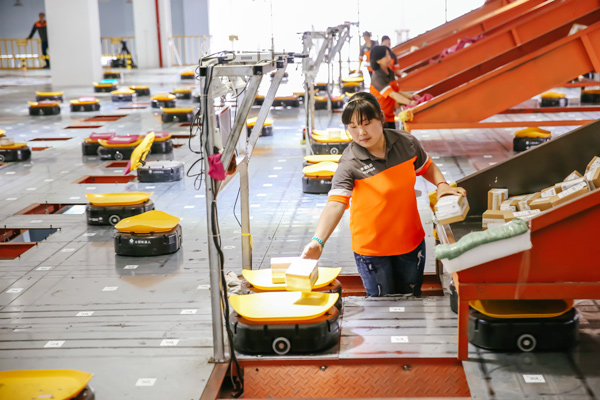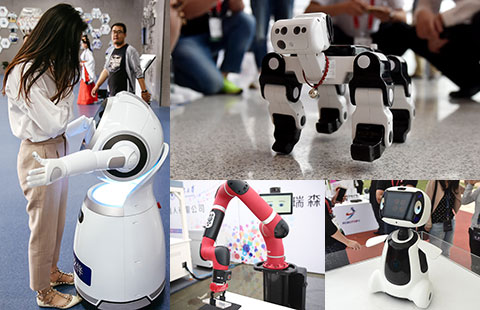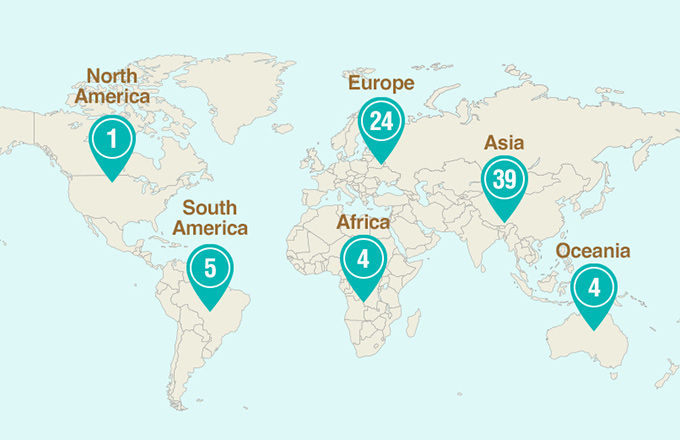Alibaba gets smart about deliveries
 |
|
Employees of a delivery service company use robots to sort parcels in Yiwu, Zhejiang province. XINHUA |
Courier aggregator unveils smart logistics platform as it eyes huge growth
Cainiao Network Technology Co Ltd, a courier aggregator backed by Alibaba Group Holding Ltd, unveiled on Monday a smart logistics platform that uses 1 million new energy vehicles for express delivery, the latest move to ride China's logistics boom.
By partnering with automakers including SAIC Motor Corp Ltd and Dongfeng Motor Group Co, Cainiao will dedicate the cars to couriers and merchants for smart transportation, which features the use of big data, cloud computing and artificial intelligence in goods delivery.
The company also pledged to provide 50 billion yuan ($7.26 billion) of financial support through MYBank, a financial unit under Alibaba, to support couriers, supply chain companies and drivers, Cainiao President Wan Lin told the 2017 Global Smart Logistics Summit in Hangzhou, Zhejiang province, where Alibaba is headquartered.
Wan predicted the platform would save 10 billion yuan in logistics expenditure annually, as it trims the rate at which its vehicles travel empty and reduces the driving distance via intelligent route planning using a leading algorithm.
China's courier industry is expected to be handling 1 billion parcels per day within five to eight years, but few couriers have developed the capabilities needed to cope with that astonishing amount, said Jack Ma, Alibaba's billionaire founder and chairman.
Ma added that the massive number of packages handled during Single's Day-when many online retailers offer massive discounts-will soon become a daily reality.
"That's why we are calling on all express delivery firms to transform into data companies and embrace new technologies," he said.
Unlike Amazon.com Inc or domestic rival JD.com Inc, Alibaba does not own its logistics infrastructure but uses Cainiao to assemble a network of delivery firms and builds a data platform that enables speedier and more efficient service by letting couriers bundle deliveries in the same area.
Combining upstream selling data on e-commerce platforms, couriers can realize virtually end-to-end forecasting, halving the time for parcel sorting, Wan noted. New technologies can also cut time, cost and errors in delivery through standardizing addresses and using digital labeling codes.
China's smart logistics market is projected to grow fivefold to 1 trillion yuan by 2025, an emerging segment that is poised to drive the next phase of growth in the world's largest logistics market, which hit 11 trillion yuan in 2016, said He Liming, head of China the Federation of Logistics and Purchasing.
New applications, such as driverless cars and drone deliveries, will also help lower the logistics cost to GDP ratio, a key gauge tracking economic efficiency, to 10 percent in the coming years, down from 14.9 percent in 2016, He said.



















